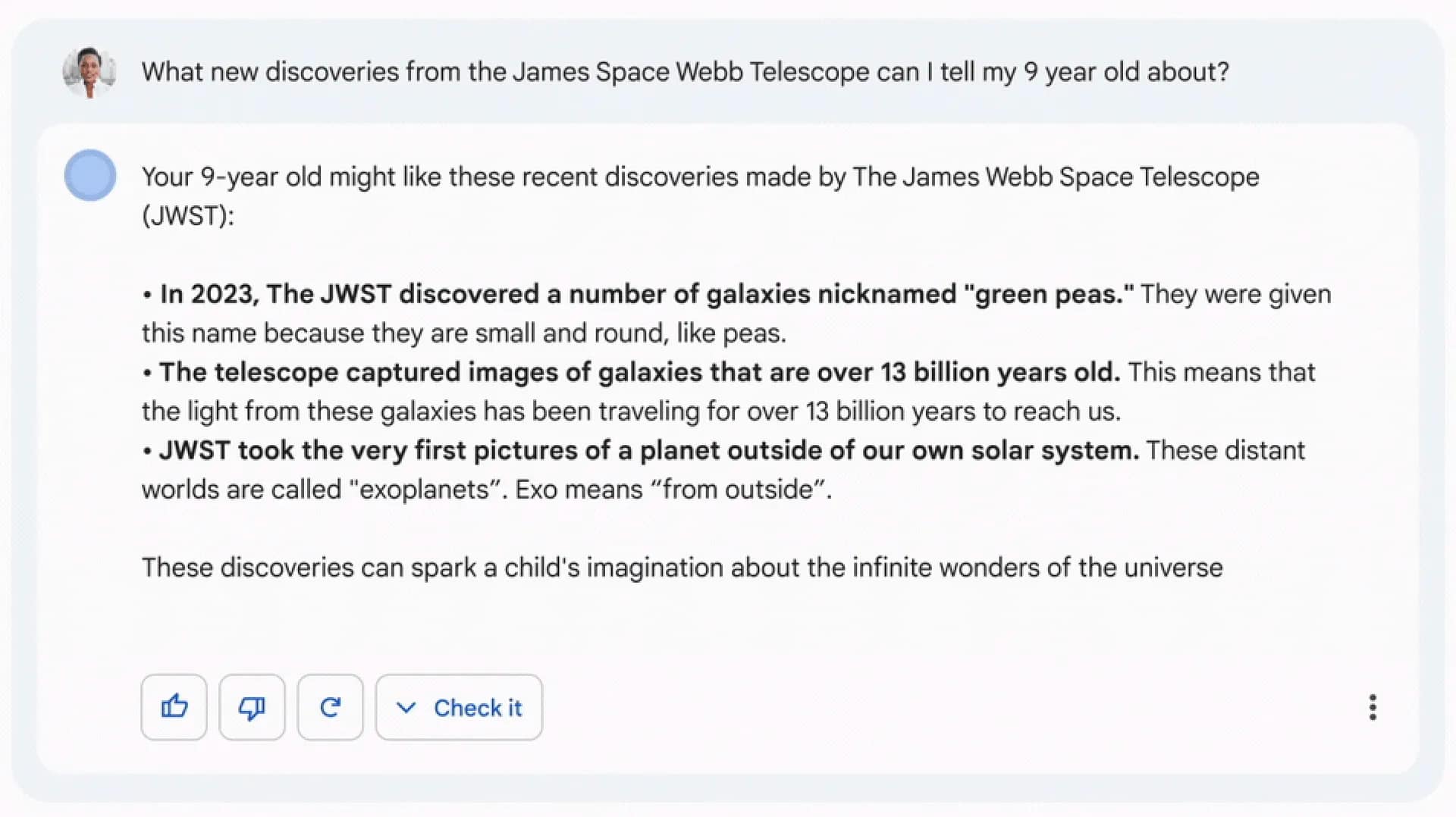
It’s been a ludicrously busy week in all things AI, with first Microsoft showing off its ChatGPT enhanced Bing search engine before Google did the same with its new Bard offering.
Those with relatively long memories will remember how Microsoft got completely blindsided by the arrival of the internet and was still producing CD-ROMs of its doomed multimedia encyclopaedia Encarta long after the rest of the world had started looking things up on Wikipedia.
Well, this time it’s determined to be ahead of the game. It announced an investment of $10bn in ChatGPT and its current AI darling developer OpenAI at the end of January and, with almost indecent haste, on Tuesday showed off a new version of its Bing search engine enhanced by the same chatbot technology.
However that only came a day after Google had tried to run a spoiler operation by teasing its announcement of its own AI-enhanced search, Bard. That was meant to wait till a press conference on Wednesday, but things with AI are moving so fast that 24 or 48 hours can make a huge difference.
There was a joke in the early days of the internet that ran along the lines of “I went for lunch and by the time I got back the whole industry had changed.” It feels a lot more current than it has for a while…
Role reversal
The roles are very much reversed though. Microsoft is now ahead of the curve by a week or two (like we said, the margins are small), while Google, which ironically did a lot of the early work on the Large Language Models that underpin the current generation of chatbots, is playing frantic catch up.
And if frantic sound like hyperbole, it really isn’t. As soon as ChatGPT broke cover people realised that its ability to provide contextualised search results as quasi-human responses rather than a list of relevant sites was a game changer. Google’s dominance of search is what its entire business model is based on. Even your author, who only touches it with effective tongs through a service such as Startpage and uses DuckDuckGo 95% of the time, talks about Googling things. Undermine that dominance and you undermine Google itself.
Which is just what Microsoft is trying to do. The ‘new Bing’ is currently in waitlist mode and has been demoed in various ways such as side by side with more traditional search results or via a ChatGPT-like interface. It’s powered by an upgraded version of the current ChatGPT 3.5 model — which Microsoft refers to as ‘the Prometheus Model’ — and can also fold in topical events, scraping news from news websites for the most up to date information possible.
It’s also going to be integrated into Microsoft’s Edge browser, giving users the ability so summarise and integrate websites, as well as generate copy.
Bard meanwhile, as we found out on Wednesday when Google stopped with the teaser releases and actually went into details, is currently only being tested in closed beta with public availability to be phased in “in the coming weeks.” And there the details sort of fizzled out. Google really is playing catch up here, at least with the consumer-facing side of the technology.
Unreliable narrator
Bard also illustrates one of the problems with chatbot based search, that of reliability. Have a look at the third answer it provided here as an illustration of its search prowess on Monday.

We are big fans of all things JWST, as you know. But, as that linked story will indicate, while Webb has indeed recently found its first exoplanet, others were found first by other telescopes. Indeed, the first exoplanet was imaged in 2004. And that error seems to have wiped $100 billion off the market value of parent company Alphabet. Yes, $100 billion.
One of the things that makes people queasy about AI search is the confidence it displays while being totally, utterly wrong about something. Admittedly a lot of the web is like this, but usually you can quickly cross reference a list of references and work out if something is an outlier or not. Less so in this case where the current crop of chatbots are frustratingly opaque about their sources.
There could be a good reason for that though. As ever with data and big corporations there are privacy issues at work here. Our queries to chatbots become data that can segment us and target us ever more precisely. Indeed, given that ChatGPT is the product of some 300 billion words or so that its scraped off the internet, including personal information, chances are that you’ve contributed to it at some point along the line.
This is a violation of privacy, in some cases of copyright, and it’s only the start. As an asrtechnica piece details, “According to the company’s privacy policy, [ChatGPT] collects users’ IP address, browser type and settings, and data on users’ interactions with the site—including the type of content users engage with, features they use, and actions they take. It also collects information about users’ browsing activities over time and across websites. Alarmingly, OpenAI states it may share users’ personal information with unspecified third parties, without informing them, to meet their business objectives.”
There are other issues as well. For better or worse a lot of the web’s current economics depends on search engines and links. If chatbots start providing all the answers up front, then who is going to click on the links that take them to other sites. Traffic and ad revenue could disappear overnight — a problem for everyone but another thing that in particular will not do wonders for Google’s business model.
And finally it’s worth reflecting on the fate of Prometheus who, according to Ancient Greek myth, was punished by Zeus for returning fire to the mortal realm by being chained to a remote crag and having his liver eaten by an eagle on a daily basis. The gift of fire is great, but Microsoft is presumably hoping for a better future for ChatGPT than that.
Tags: Technology


Comments